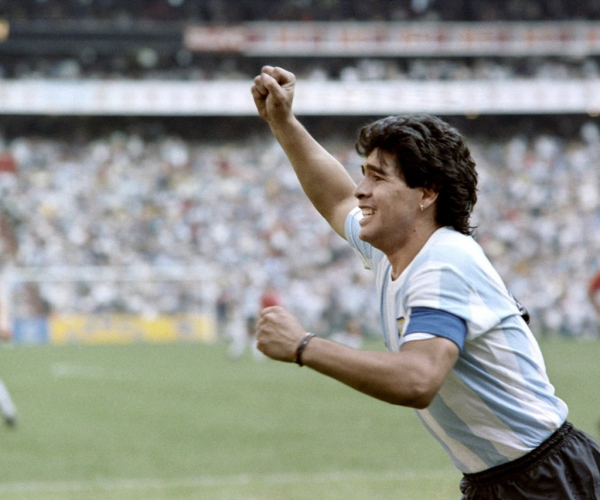
Selección Argentina de Fútbol

1893
The history of Argentina's national soccer team is rich and complex, full of memorable moments, legendary figures and significant achievements on the world stage. The following is a detailed look at the team's past decades, highlighting the key events and trends that have marked its evolution.
The 1960s: Foundations for the Future
During the 1960s, the Argentine national team began to lay the foundations for future success. Although it did not achieve significant titles in this decade, it actively participated in international competitions, such as the South American championships (now known as the Copa América) and the World Cup qualifiers. This era was important for the tactical and technical development of the national team, paving the way for emerging stars.
The 1970s: The World Cup at Home
The 1970s were dominated by the preparation and staging of the 1978 FIFA World Cup in Argentina. Under the technical direction of César Luis Menotti, the Argentine national team adopted an attacking and fluid style of play, culminating in winning its first World Cup title on home soil. This triumph not only raised the profile of Argentine soccer worldwide but also instilled a sense of national pride at a politically and socially turbulent time in the country.
The 1980s: The Maradona Era
The 1980s will forever be associated with Diego Armando Maradona, one of the most outstanding soccer players of all time. His performance at the 1986 FIFA World Cup in Mexico was legendary, leading Argentina to its second World Cup title with memorable performances, including the famous "Goal of the Century" against England in the quarterfinals. Maradona's influence, both on and off the field, profoundly marked the Argentine national team during this decade.
The 1990s: Changes and Challenges
The 1990s represented a time of changes and challenges for the Argentine national team. Despite having a talented generation of players, such as Gabriel Batistuta and Diego Simeone, the team faced difficulties in international competitions. The 1993 Copa América, won in Ecuador, was a high point, but frustrations at the 1990, 1994, and 1998 World Cups, where Argentina showed flashes of brilliance but failed to reach the final, reflected an era of missed opportunities.
The 2000s: Near and Far from Success
The Argentine national team continued its quest for a third world title in the 2000s, reaching the final of the Copa America on several occasions (2004, 2007) and showing attractive soccer in the World Cups. However, success eluded the team at crucial moments. The generation of Lionel Messi, considered one of the best players of all time, began to make its presence felt, promising a bright future for the Albiceleste.
The 2010s: The Messi Era
Under the shadow and leadership of Lionel Messi, Argentina reached the final of the 2014 World Cup in Brazil, a tournament that revitalized the love and passion for the national team. Despite the loss to Germany in the final, the team showed cohesion and a high level of competence. Back-to-back Copa América finals in 2015 and 2016, although ending in penalty shootout defeats, demonstrated the consistency and talent of the Argentine team on the continental stage.
Towards the Future: The Current Era and the Challenges of the 21st Century.
The Argentine national team enters the current era with a renewed sense of optimism and the promise of new and emerging talent. Victory at the Copa América 2021, with Messi at the helm, marked the end of a long drought of major titles and symbolized the beginning of a new chapter for Argentine soccer. With the combination of experience and youth, Argentina is once again positioning itself as a dominant force in world soccer, with its sights set on future international success.
Throughout these decades, the Argentine national soccer team has experienced ups and downs, but its passion, talent and resilience have remained constant. Each era has left an indelible mark on the rich history of Argentine soccer, contributing to the legend and legacy of the Albiceleste on the world stage.
The Three Stars
1978 FIFA World Cup: Triumph at Home
The 1978 World Cup, held in Argentina, marked the first victory of the Argentine national team in a world tournament. Under the technical direction of César Luis Menotti and with a team that combined talent, passion and an attacking strategy, Argentina set out to prove their worth on home soil. The road to glory was not without its difficulties, facing criticism and pressure both on and off the field, in a complex political and social context.
The Argentine national team got through the group stage and the second round with convincing performances, reaching the final against the Netherlands. On June 25, 1978, at the Monumental Stadium in Buenos Aires, Argentina defeated the Dutch 3-1 after extra time, with goals by Mario Kempes, who was the star of the tournament, and Daniel Bertoni. This triumph not only consolidated Argentina as a world soccer power but also united the country in a collective celebration, providing a moment of joy in difficult times.
1986 FIFA World Cup: The Magic of Maradona in Mexico
The 1986 World Cup in Mexico is remembered as Diego Maradona's tournament. His genius and leadership led Argentina to its second World Cup title, enshrining his legacy as one of the greatest players of all time. The team, coached by Carlos Bilardo, combined technical skill, tactics and unwavering determination, with Maradona at the heart of their success.
Argentina advanced through the competition with key victories, including the iconic quarter-final against England, where Maradona scored two of the most famous goals in soccer history: "The Hand of God" and the "Goal of the Century," a marvel of individual skill. The final against West Germany was held on June 29, 1986, at the Azteca Stadium in Mexico City, where Argentina won 3-2 in a thrilling encounter, with Jorge Valdano, Jorge Burruchaga and Maradona himself playing key roles.
2022 FIFA World Cup: Renaissance in Qatar
The 2022 World Cup in Qatar represented a renaissance for the Argentine national team, crowning them world champions for the third time and culminating a tournament of contrasts and emotions. Under the technical direction of Lionel Scaloni, and led by Lionel Messi in what many anticipated would be his last World Cup, Argentina demonstrated a blend of experience, young talent and an unbreakable team spirit.
After a surprising start with a loss to Saudi Arabia, Argentina bounced back in impressive fashion, overcoming the likes of Mexico, Poland, Australia, the Netherlands and Croatia on their way to the final. The final against France, held on December 18, 2022, at Lusail Stadium, was an epic encounter that ended 3-3 after extra time, highlighted by intensity, drama and quality of play. Argentina prevailed in the penalty shootout, with Emiliano Martinez being crucial in goal. Lionel Messi and Kylian Mbappé shone for their respective teams, but it was Argentina's night, celebrating a long-awaited triumph, closing Messi's cycle with the national team with the highest honor.
Each of these World Cups has contributed to the rich history of Argentine soccer, leaving legacies that go beyond trophies, inspiring generations of players and fans in Argentina and around the world.








































